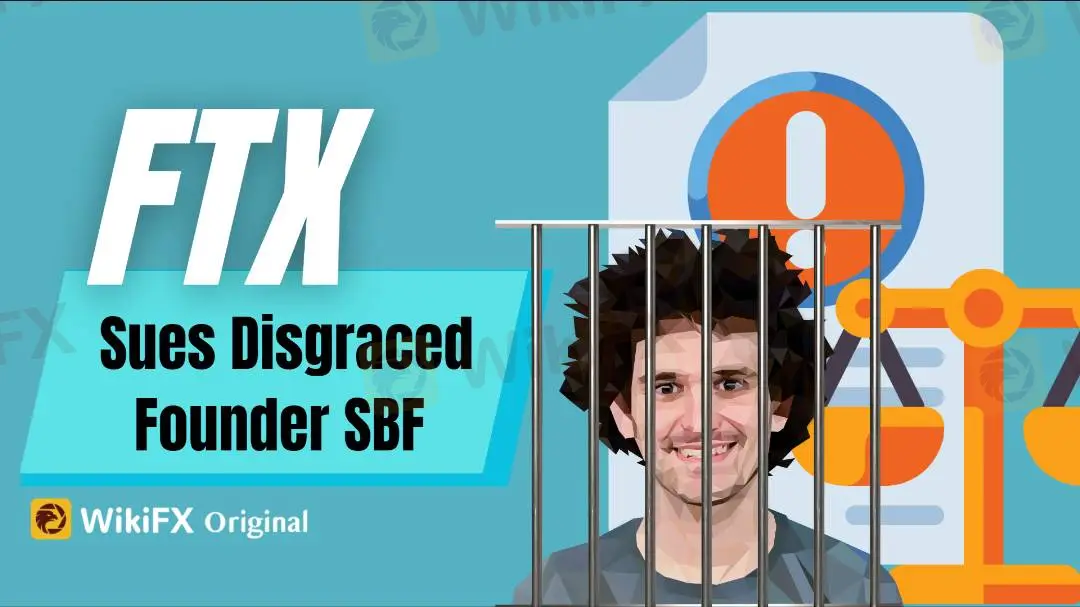简体中文
繁體中文
English
Pусский
日本語
ภาษาไทย
Tiếng Việt
Bahasa Indonesia
Español
हिन्दी
Filippiiniläinen
Français
Deutsch
Português
Türkçe
한국어
العربية
FTX Sues Disgraced Founder SBF
Abstract:In the recent lawsuit, FTX alleges that SBF and his associates misused all the funds for personal benefits and to influence politicians through lobbying, rather than utilizing them for the exchange's purposes.

On July 20, Thursday, FTX Trading launched a new lawsuit against its disgraced founder, Sam Bankman-Fried, and other former executives, aiming to recover over $1 billion from questionable transactions.
FTX filed the complaint in the Delaware bankruptcy court, naming co-founder Gary Wang, who also served as the chief technology officer, as one of the defendants. Additionally, the lawsuit includes Nisha Singh, the former director of engineering, and Caroline Ellison, the co-chief executive of Alameda Research LLC. The lawsuit alleges that these individuals were involved in fraudulent transactions that personally benefited them, rather than benefiting the exchange.
FTX has accused the defendants of consistently misappropriating funds for personal use, financing luxury condominiums, making political contributions, engaging in speculative investments, and funding various personal projects. The company alleges that these actions have led to what they describe as “one of the largest financial frauds in history.”
As an example, the complaint alleges that Bankman-Fried and Wang utilized $546 million from Alameda in May 2022 to purchase shares in Robinhood Markets Inc. They purportedly provided Alameda with fraudulent loans, which were not backed by any collateral and carried lower interest rates than standard loans. The lawsuit further states that these loans were authorized solely by Ellison.
SBF, Wang, and Singh are accused of orchestrating a scheme involving fraudulent loans to acquire stocks from FTX, amounting to an astonishing $250 million at the time of the alleged incident.
FTX On A Recovery Mode
Amidst the ongoing bankruptcy procedure, FTX is under the leadership of John Ray, who is spearheading efforts to rectify the wrongful fund transfers made by the platform and its associates.
As part of a broader strategy to repay creditors, including customers who lost cryptocurrency during the exchange's collapse in November, FTX, led by its new CEO John Ray, is pursuing lawsuits to recover funds, leveraging bankruptcy rules and Chapter 11 filing.
FTX's current board is actively planning to resume exchange operations later this year. Successful fund recovery from SBF and his associates will accelerate the process of making a comeback. While Bankman-Fried maintains his innocence regarding the criminal charges, Ellison, Wang, and Singh have pleaded guilty and are cooperating with prosecutors.

Disclaimer:
The views in this article only represent the author's personal views, and do not constitute investment advice on this platform. This platform does not guarantee the accuracy, completeness and timeliness of the information in the article, and will not be liable for any loss caused by the use of or reliance on the information in the article.
Read more

Kraken Offers $105 Fee Credit for FTX Fund Recipients
Kraken offers $105 in trading fee credits to FTX fund recipients, enabling $50,000 in crypto trading on Kraken Pro with zero fees. Secure your funds today!

Standard Chartered Secures EU Crypto License in Luxembourg
Standard Chartered secures Luxembourg crypto license, focusing on Bitcoin and Ethereum custody services as it expands digital asset solutions across the EU.

U.S. to Auction $6.5 Billion in Bitcoin in 2025
The U.S. government plans to auction $6.5 billion in Bitcoin seized from Silk Road in 2025. Analysts debate market impact as BTC prices show mixed reactions.

Bitcoin in 2025: The Opportunities and Challenges Ahead
Bitcoin experienced a transformative year in 2024, with its value surpassing $100,000 and attracting attention from institutional investors, retail traders, and governments alike. This growth was driven by milestones such as the approval of spot bitcoin ETFs and increasing adoption by major financial institutions. As 2025 begins, bitcoin’s position as a cornerstone of the digital financial ecosystem is stronger than ever.
WikiFX Broker
Latest News
High-Potential Investments: Top 10 Stocks to Watch in 2025
US Dollar Insights: Key FX Trends You Need to Know
Why Is Nvidia Making Headlines Everywhere Today?
Discover How Your Trading Personality Shapes Success
FINRA Charges UBS $1.1 Million for a Decade of False Trade Confirmations
Bitcoin in 2025: The Opportunities and Challenges Ahead
BI Apprehends Japanese Scam Leader in Manila
Big News! UK 30-Year Bond Yields Soar to 25-Year High!
SQUARED FINANCIAL: Your Friend or Foe?
Join the Event & Level Up Your Forex Journey
Currency Calculator






